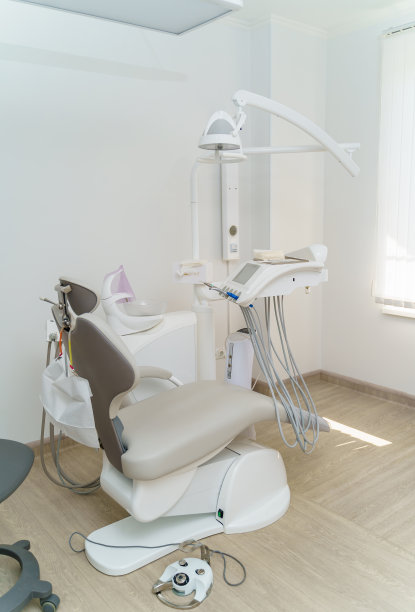Summary: Before undergoing root canal treatment, it is crucial to follow certain guidelines to ensure a successful recovery and effective pain management. This article outlines essential pre-treatment considerations, including understanding the procedure, preparing mentally and physically, potential risks associated with the treatment, and post-treatment care. Each aspect is discussed in detail, providing patients with the knowledge they need to ease anxiety and promote healing after the procedure. This guide aims to equip individuals with practical strategies to manage expectations and navigate the recovery effectively.
1. Understanding the Root Canal Procedure

The first step in preparing for root canal treatment is acquiring a thorough understanding of the procedure. Root canals are performed to remove the infected or damaged pulp from the inside of a tooth, which is critical for saving a tooth that might otherwise be lost. Familiarizing yourself with the stages of the procedure can alleviate anxiety and help you communicate effectively with your dentist.
During the treatment, local anesthesia will be administered to ensure comfort. Patients should know they might experience pressure during the procedure, but it should not be painful. Understanding that the dentist will use advanced techniques and technologies can also instill confidence in the process.
Additionally, discussing any concerns with your dentist beforehand can clarify what you can expect, which is vital in managing apprehension and ensuring the treatment goes smoothly.
2. Mental and Physical Preparation Steps
Mental preparation plays a significant role in how one perceives dental procedures. Engaging in relaxation techniques such as deep breathing, meditation, or visualization can help calm nerves before the treatment. Prior to the appointment, consider setting aside time to practice these techniques, allowing you to approach the situation more positively.
Physical preparation is equally important. Eating a light meal before the appointment can help maintain energy levels, particularly if sedation is involved. However, avoid heavy meals that might cause discomfort during the procedure, especially if local anesthesia is used.
Moreover, arranging for a ride home post-treatment can alleviate stress about recovering from anesthesia or any discomfort, ensuring that you are focused solely on healing.
3. Recognizing Potential Risks and Complications
Being aware of potential risks associated with root canal treatments is essential for preparing mentally and physically. While the procedure is generally safe, complications such as infection, nerve damage, or incomplete removal of the pulp can occur. Understanding these risks helps you set realistic expectations and trust your healthcare provider fully.
Furthermore, discussing your medical history with your dentist is crucial, as certain conditions or medications may increase risks. This open dialogue can lead to tailored treatment strategies that minimize potential complications.
Knowing what to watch out for post-treatment, such as signs of infection or persistent pain, empowers patients to seek further assistance if necessary, fostering a proactive approach to recovery.
4. Post-Treatment Care for Effective Recovery
Post-treatment care is pivotal in ensuring a quick recovery and managing pain effectively. After the procedure, follow your dentist’s instructions regarding medications and follow-up appointments. Typically, over-the-counter pain relievers are sufficient, but your dentist may prescribe additional medication based on your particular case.
Resting after the treatment is also crucial. Avoid strenuous activities for at least 24 hours to give your body time to heal. Hydration and consuming soft foods can further support your recovery process, reducing discomfort during eating.
Moreover, maintaining good oral hygiene after the treatment, while being mindful of any sensitive areas, will aid in the overall healing process and help prevent future issues. Regular follow-ups will ensure that your tooth remains free from infection and functioning well.
Summary:
In conclusion, preparing for root canal treatment involves understanding the procedure, staying mentally and physically prepared, recognizing potential risks, and adhering to post-treatment care practices. Each of these aspects contributes significantly to not only managing pain but also ensuring a smooth recovery process. By following these essential guidelines, patients can experience a more comfortable treatment and healing journey.
This article is compiled by Vickong Dental and the content is for reference only.
Vickong Dental
Vickong Dental is a large medical group established in Hong Kong in 2008 by professors from well-known medical universities in Guangdong and Hong Kong, as well as medical doctors from key national '985' universities (including Master's supervisors and senior professors). The chain of branches brings together expert dentists with PhDs and Master's degrees from Hong Kong and Mainland China, committed to providing high-quality dental treatment.
"Vickong Dental Practices the University Motto of 'Healing and Serving Society,' with a Stable Operation for Sixteen Years. It Has Been honored with Hong Kong Enterprise Leaders's Choice,' and is a Global Trusted Implant Center for the Nobel Implant System. Recommended by Hong Kong Metro Broadcast and Guangdong Television, it Serves Customers from Over Thirty Countries and Regions, Gaining the Trust and Favor of Citizens from the Guangdong-Hong Kong-Macau Greater Bay Area and Surrounding Cities.

Thousands of customers' unanimous praise
The most recognized and highly recommended dental service by customers in the Guangdong-Hong Kong-Macau Greater Bay Area
We Ensure You Receive Detailed Care and Attention Here
Hong Kong standards, Shenzhen prices, Your Trusted English-speaking dentists

Vickong Dental Medical-Grade Instrument Disinfection Process
Vickong Dental Medical-Grade Instrument Disinfection Process

Vickong Dental Chain: A Warm and Comfortable Environment for Treatment






Appointment Hours

Q&A
Why choose Vickong Dental?
Vickong Dental practices the university motto 「Medicine to Benefit Society」, with each branch bringing together highly qualified dentists with doctoral and master’s degrees from Hong Kong and the Mainland, and has maintained seventeen years of steady operation。Recipient of 「2024 Hong Kong Enterprise Leaders Brand」, 「2025 Hong Kong Enterprise Leaders Brand」, a Nobel Biocare Global Trusted Implant Center, and a brand recommended by Metro Radio Hong Kong and Guangdong TV。
To date, we have served customers from more than thirty countries and regions,earning exceptionally high word-of-mouth recognition and trusted recommendations from residents across the Guangdong-Hong Kong-Macao Greater Bay Area and surrounding cities
We have eight major branches in Zhuhai、Shenzhen,and a consultation and service assurance center in Hong Kong,so you can book a free consultation at any time for any questions,which is very reassuring.
If I do not accept the quotation after the CT scan, will I be charged??
No! As long as the actual treatment has not started, you will not be charged any fees.
Will there be any additional charges during the treatment process?
No, there won’t be any additional charges. Before treatment begins, we will clearly explain the treatment plan and its corresponding fees. Only after the patient agrees and signs the consent form will we proceed with the dental service.
Can I pay in Hong Kong dollars?
Yes. Vickong Dental accepts payment in Hong Kong dollars. The amount will be converted based on the exchange rate of the day, and the applicable rate will be clearly communicated to you in advance.
Can I reschedule my appointment at any time?
Yes. Please contact us via **WeChat** or **WhatsApp** as early as possible, providing your original appointment time and details, along with your preferred new date and time slot for rescheduling.













